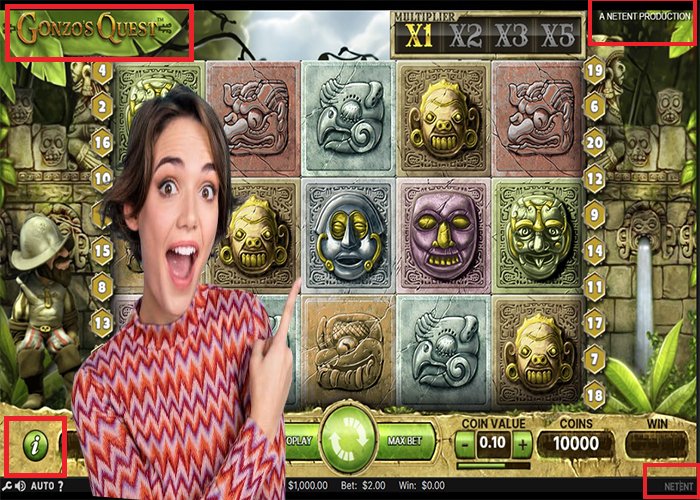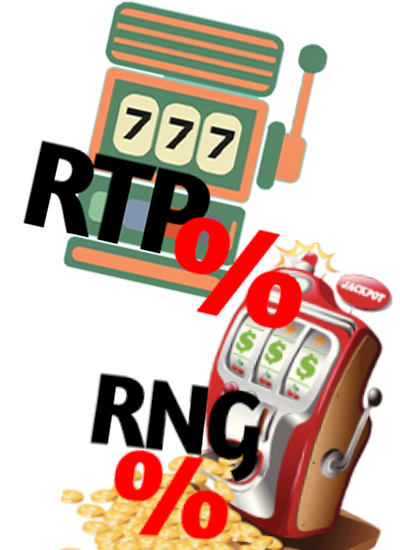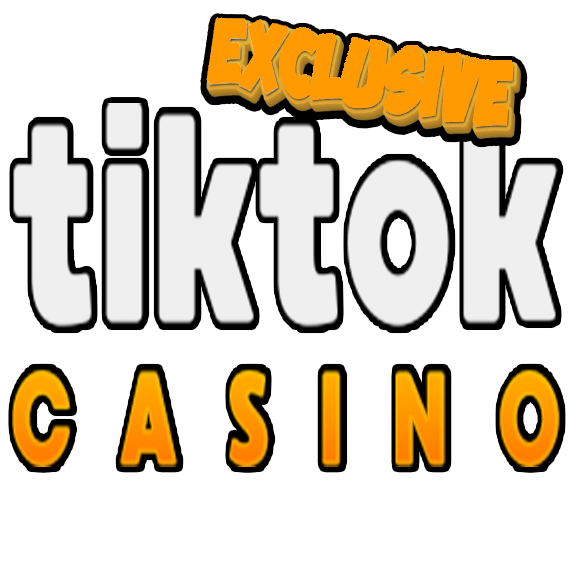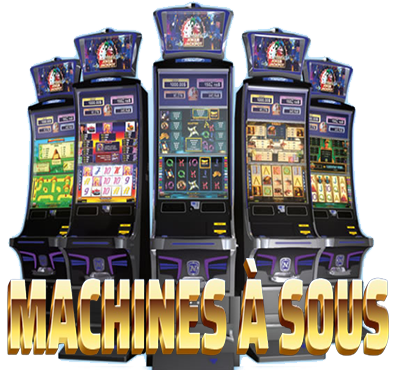How To Pick The Perfect French Online Casino 2024
Are you on the hunt for the perfect French online casino? Look no further! At Jeux Casino En Ligne, we provide expert insights to help you make the best choice. Selecting the ideal casino involves considering factors such as licensing, game variety, bonuses, payment methods, and customer support. The top French casinos are licensed by reputable authorities, offer thousands of games from leading providers, and provide generous bonuses to maximize your winnings. They also support a variety of secure payment options and have responsive customer service. Start your journey with us today!

Choosing the perfect French-speaking online casino in 2024 can be a daunting task, given the plethora of options available in the market. At Jeux Casino En Ligne, we understand the challenges that players face and are here to guide you through the process. Our goal is to help you find a casino that not only meets your gaming preferences but also ensures a safe and enjoyable experience. Here's a comprehensive guide on how to pick the perfect French-speaking online casino in 2024. With our comprehensive reviews and guides, you'll find the perfect French online casino that meets all your needs and ensures a safe, enjoyable, and rewarding gaming experience.
The first and foremost factor to consider when selecting an online casino is its licensing and regulation. A reputable casino should be licensed by a recognized authority, such as the Malta Gaming Authority (MGA), the UK Gambling Commission, or Curaçao eGaming. These licenses ensure that the casino operates under strict regulations, providing a safe and fair gaming environment. Before signing up, check the casino's website for licensing information, usually found at the bottom of the homepage.
A perfect online casino should offer a diverse range of games to cater to different player preferences. Look for casinos that feature a wide selection of slots, table games, live dealer games, and specialty games. Leading game providers like NetEnt, Microgaming, Play'n GO, and Evolution Gaming are a good sign of quality and variety. Additionally, many French-speaking online casinos now offer games themed around popular TV shows and movies, adding an extra layer of excitement.
Bonuses and promotions are a significant draw for online casino players. The best French-speaking online casinos offer generous welcome bonuses, ongoing promotions, and loyalty programs to reward their players. When evaluating bonuses, pay attention to the terms and conditions, including wagering requirements, game restrictions, and withdrawal limits. A good bonus should have reasonable terms that allow you to enjoy your winnings without excessive restrictions.
A variety of secure and convenient payment methods is crucial for a seamless gaming experience. The ideal online casino should support popular payment options such as credit/debit cards, e-wallets like PayPal and Skrill, bank transfers, and even cryptocurrencies. Additionally, check for the speed of transactions, especially withdrawals, and ensure there are no hidden fees. A casino that offers multiple payment methods demonstrates its commitment to providing a flexible and user-friendly experience. In 2024, mobile compatibility is a must-have feature for any top-tier online casino.
Ensure that the casino you choose has a fully optimized mobile site or a dedicated app that allows you to play your favourite games on the go.
The mobile platform should offer the same functionality and game variety as the desktop version, with smooth navigation and responsive design.
Reliable customer support is essential for resolving any issues or queries you may have while playing. The best French-speaking online casinos offer multiple support channels, including live chat, email, and phone support, with 24/7 availability.
Additionally, a comprehensive FAQ section can be incredibly helpful for quickly finding answers to common questions. Your safety and the fairness of the games are paramount. Look for casinos that use advanced encryption technologies to protect your personal and financial information. Also, ensure that the casino's games are regularly audited by independent agencies like eCOGRA or iTech Labs to guarantee fair play and randomness.
Lastly, consider the casino's reputation and read reviews from other players. Online forums, review sites, and social media can provide valuable insights into the casino's reliability, game quality, and customer service. A casino with a positive reputation and high ratings is likely to provide a better overall experience. By considering these factors, you can confidently choose the perfect French-speaking casino that meets your needs and preferences. At Jeux Casino En Ligne, we strive to provide you with the most comprehensive and up-to-date information to help you make informed decisions. Happy gaming!
How To Pick The Perfect French Online Casino?

Choosing the perfect French online casino involves a blend of research, evaluation, and understanding your own preferences. With the multitude of options available, it's crucial to make informed decisions to ensure a safe and enjoyable gaming experience. Here’s a comprehensive guide on how to pick the ideal French online casino.
First and foremost, ensure that the online casino is properly licensed and regulated. A reputable casino should have a license from recognized authorities such as the Malta Gaming Authority, the UK Gambling Commission, or Curaçao eGaming. These licenses indicate that the casino operates under strict regulations and standards, ensuring fair play and security. You can typically find licensing information at the bottom of the casino’s homepage or in the ‘About Us' section.
Game variety is another critical factor. The best French online casinos offer a diverse range of games to cater to different tastes. Look for a casino that provides an extensive selection of slots, table games, live dealer games, and specialty games. Leading software providers such as NetEnt, Microgaming, Play'n GO, and Evolution Gaming are a good indication of quality and variety. If you enjoy niche games or specific themes, check whether the casino offers these as well.
Bonuses and promotions play a significant role in enhancing your gaming experience. The ideal online casino should offer attractive welcome bonuses, ongoing promotions, and a rewarding loyalty program. However, it's essential to read the terms and conditions associated with these bonuses. Pay attention to wagering requirements, game restrictions, and withdrawal limits. Bonuses should have reasonable terms that allow you to enjoy your winnings without excessive hurdles.

Payment methods are crucial for convenience and security. The perfect French online casino should support a variety of secure and convenient payment options. Look for casinos that accept credit and debit cards, e-wallets like PayPal and Skrill, bank transfers, and cryptocurrencies. Additionally, consider the speed of transactions, especially withdrawals, and ensure there are no hidden fees. A casino that offers multiple payment methods demonstrates its commitment to providing a user-friendly experience.
Customer support is a vital aspect of any online casino experience. The best French online casinos provide multiple support channels, including live chat, email, and phone support. Ideally, customer support should be available 24/7 to assist you with any issues or queries. Additionally, a comprehensive FAQ section can be incredibly helpful for quick resolutions to common questions.
Mobile compatibility is essential in today’s digital age. Ensure that the online casino has a fully optimized mobile site or a dedicated app. This allows you to enjoy your favourite games on the go without compromising on quality or functionality.
The mobile platform should offer the same range of games and features as the desktop version, with smooth navigation and a responsive design. Security and fairness are non-negotiable when it comes to online gaming. Ensure that the casino uses advanced encryption technologies to protect your personal and financial information. Also, look for evidence of regular audits by independent agencies such as eCOGRA or iTech Labs. These audits ensure that the games are fair and that the outcomes are random.
Lastly, consider the casino’s reputation and reviews from other players. Online forums, review sites, and social media can provide valuable insights into the casino’s reliability, game quality, and customer service. A casino with a positive reputation and high ratings is likely to offer a better overall experience. By carefully considering these factors, you can confidently choose the perfect French online casino that meets your needs and preferences. This thorough approach will help ensure a safe, enjoyable, and rewarding online gaming experience.
What Makes The Perfect French Online Casino?

The perfect French online casino embodies a blend of key attributes that together create an unparalleled gaming experience for its users. Here’s a detailed look at what makes an online casino ideal for French-speaking players. First and foremost, a perfect French online casino must be fully licensed and regulated by a reputable authority.
This could be from organizations like the Malta Gaming Authority or the Curaçao eGaming. Licensing ensures that the casino adheres to strict standards of fairness, security, and transparency. Players can trust that the games are not rigged, their personal information is protected, and that they have legal recourse in case of disputes.
A diverse and high-quality game library is another hallmark of the perfect French online casino. The casino should offer a wide range of games to cater to all types of players, from casual gamers to high rollers. This includes an extensive selection of slots, table games like blackjack and roulette, live dealer games, and specialty games such as bingo or keno. The presence of games from top software providers like NetEnt, Microgaming, Evolution Gaming, and Play'n GO indicates a high-quality gaming experience, with excellent graphics, smooth gameplay, and fair outcomes.
Bonuses and promotions are critical in attracting and retaining players. The perfect French online casino offers generous welcome bonuses, ongoing promotions, and a rewarding loyalty program. These bonuses should have fair and transparent terms and conditions. Reasonable wagering requirements and clear instructions on how to claim and use these bonuses are essential. Players should feel that they are genuinely getting value from these offers without feeling trapped by unrealistic conditions.
Security and fair play are non-negotiable aspects. Advanced encryption technologies, such as SSL, should be in place to protect players' personal and financial data. Regular audits by independent agencies like eCOGRA or iTech Labs ensure that the games are fair and the outcomes are random. This transparency builds trust and gives players peace of mind.
Customer support is another critical component. The perfect French casino provides responsive and helpful customer service available 24/7. Multiple channels of communication, including live chat, email, and phone support, should be readily accessible. Additionally, a well-organized FAQ section can help players quickly find answers to common questions.
Payment methods are also a significant factor. The ideal casino offers a variety of secure and convenient payment options, including credit and debit cards, e-wallets like PayPal and Skrill, bank transfers, and cryptocurrencies. Fast processing times for deposits and withdrawals, without excessive fees, enhance the overall user experience. The ability to transact in euros is also crucial for French players, as it avoids currency conversion fees and complexities.
A mobile-friendly platform is essential in today’s digital age. The perfect online casino should offer a seamless mobile experience, whether through a dedicated app or a fully optimized mobile site. Players should be able to access the full range of games and features from their smartphones or tablets, with intuitive navigation and responsive design.
Lastly, the perfect French online casino has a stellar reputation. Positive reviews from other players, high ratings on review sites, and active engagement on social media are all indicators of a trustworthy and high-quality casino. The casino should have a history of treating players fairly, promptly paying out winnings, and resolving disputes efficiently.
The perfect French casino combines robust licensing and regulation, a diverse and high-quality game selection, generous bonuses with fair terms, strong security measures, excellent customer support, a variety of payment options, mobile compatibility, and a strong reputation. By focusing on these aspects, players can enjoy a safe, fair, and highly enjoyable gaming experience.
How To Know That A Casino Has A Legit Gambling License?
Determining whether a casino holds a legitimate gambling license is essential for ensuring a safe and equitable gaming experience. Verifying the validity of a casino's license is crucial for safeguarding yourself against potential risks and ensuring that you are engaging with a trustworthy operator. Below is a comprehensive guide on how to confirm if a casino operates under a legitimate gambling license:
Firstly, check the casino's website for licensing information. Reputable online casinos prominently display their licensing credentials at the bottom of their homepage or within the ‘About Us' section. Look for the name of the licensing authority, the license number, and other relevant details. Common and respected licensing authorities include the Malta Gaming Authority (MGA), the UK Gambling Commission (UKGC), the Gibraltar Regulatory Authority, and Curaçao eGaming. These organizations are known for their stringent regulations and oversight.
Next, verify the license with the licensing authority. Visit the official website of the licensing body mentioned on the casino's site. Most licensing authorities provide a database or a verification tool where you can enter the casino's name or license number to confirm its legitimacy. This step is crucial because some rogue casinos might falsely claim to hold a license from a reputable authority. Additionally, examine the casino’s reputation and player reviews. Look for consistent feedback regarding the casino's licensing status, fairness, and overall reliability. If multiple sources affirm the casino's legitimacy, it's a good sign.
Another way to assess the legitimacy of a casino’s license is to look for certifications from independent auditing agencies. Organizations like eCOGRA (eCommerce Online Gaming Regulation and Assurance), iTech Labs, and GLI (Gaming Laboratories International) test and certify online casinos for fairness and security. If a casino displays a certification from any of these agencies, it indicates that the casino adheres to high standards and is regularly audited for compliance.
Furthermore, legitimate casinos will have clear and transparent terms and conditions. Licensing authorities require casinos to have comprehensive terms and conditions outlining rules for gameplay, bonus policies, withdrawal limits, and dispute resolution processes. Read through these documents carefully. If they are written clearly and fairly, it’s another indicator of a trustworthy operation.
Check if the casino adheres to responsible gambling practices. Reputable licensing authorities mandate that casinos implement measures to promote responsible gambling. This includes providing tools for players to set deposit limits, self-exclude, and access support for problem gambling. Look for responsible gambling information on the casino’s site and ensure there are links to support organizations like GamCare, Gambling Therapy, or Gamblers Anonymous.
Assess the casino’s customer support. A legitimate and licensed casino will offer robust customer support options. Contact the support team with any queries about their license. The responsiveness and transparency of their answers can provide further assurance of their credibility.
Lastly, be wary of casinos with licenses from lesser-known or obscure jurisdictions. While not all lesser-known licenses are illegitimate, they often have fewer regulations and oversight compared to well-established authorities. Casinos licensed in jurisdictions with stringent regulations are generally more reliable.
To determine if a casino has a legitimate gambling license, start by checking the licensing information on the casino's website and verify it with the licensing authority. Look for certifications from independent auditing agencies, read through player reviews, and ensure the terms and conditions are clear and fair. Additionally, confirm the presence of responsible gambling measures and assess the quality of customer support. By following these steps, you can ensure that you are playing at a trustworthy and licensed online casino.
How To Know That A Casino Has Legit Casino Games?
Determining whether a casino offers legitimate casino games is crucial for ensuring a fair and secure gaming experience. Ensuring that the games are authentic and trustworthy helps protect you from potential fraud and guarantees that you have a genuine chance of winning. Here are essential steps to verify the legitimacy of casino games:
Firstly, research the game providers featured at the casino. Legitimate online casinos partner with well-known and reputable software developers such as Microgaming, NetEnt, Playtech, Evolution Gaming, and Betsoft. These developers have established reputations for creating fair, high-quality games. Check the casino's website for a list of their game providers. If the casino features games from these reputable developers, it’s a strong indicator of legitimacy.
Next, look for independent audits and certifications. Reputable casinos and game developers often submit their games to independent testing agencies for verification of fairness and randomness. Agencies such as eCOGRA, iTech Labs, GLI (Gaming Laboratories International), and TST (Technical Systems Testing) conduct rigorous testing to ensure that game outcomes are random and fair. Check the casino's website or the game provider's website for information about these certifications. If a game or a casino carries a certification from one of these agencies, it’s a positive sign of legitimacy.
Additionally, verify the casino's licensing. Legitimate online casinos operate under licenses from reputable regulatory authorities like the Malta Gaming Authority (MGA), the UK Gambling Commission (UKGC), and the Gibraltar Regulatory Authority. These licensing bodies enforce strict regulations regarding game fairness and security. Visit the licensing authority’s website to confirm that the casino is indeed licensed and in good standing. Licensed casinos are required to ensure that their games meet high standards of fairness and integrity.
Review the terms and conditions related to gameplay. Legitimate casinos have clear and comprehensive terms and conditions that detail how their games operate, including rules for payouts, return to player (RTP) percentages, and bonus policies. Read through these terms carefully. Transparency and detailed explanations are signs of a trustworthy casino. If the terms and conditions are vague or overly complicated, it might be a red flag.

Examine player reviews and ratings. Online forums, review sites, and player communities provide valuable insights into the experiences of other players with the casino's games. Look for consistent positive feedback about game fairness and functionality. Sites like CasinoMeister, AskGamblers, and TrustPilot are good resources for unbiased player reviews. Pay attention to any recurring issues or complaints about game rigging or unfair practices.
Check for RNG (Random Number Generator) information. Legitimate casino games, especially slots and table games, use RNGs to ensure that game outcomes are random and unbiased. Reliable casinos and game providers will provide information about their RNGs and how they are tested. This information is usually found in the game rules or the casino’s information section. Verified RNG usage is a crucial factor in determining game legitimacy.
Look for responsible gambling measures. Legitimate casinos promote responsible gambling and offer tools to help players manage their gaming activity, such as deposit limits, self-exclusion options, and links to support organizations. These measures are typically required by reputable licensing authorities and indicate that the casino is committed to fair and ethical gaming practices.
Finally, contact customer support with specific questions about game fairness. A legitimate casino will have a responsive and transparent customer support team that can answer queries about their games, including details about their fairness and testing. Engaging with customer support can provide additional reassurance about the casino’s commitment to offering legitimate games.
To determine if a casino offers legitimate casino games, research the game providers, look for independent audits and certifications, verify the casino's licensing, review the terms and conditions, examine player reviews, check for RNG information, look for responsible gambling measures, and engage with customer support. Following these steps will help ensure that you are playing fair and secure games at a reputable online casino.
Will Your Personal Data Be Safe At Online Casinos?
Ensuring the safety of your personal data at online casinos is paramount in today’s digital age. When registering with an online casino, particularly those recommended by our website, you can have a high level of confidence in the security measures in place. However, if you choose to register with casinos not vetted by us, the safety of your personal data cannot be guaranteed. Here’s a detailed explanation of how reputable online casinos protect your personal information and the steps you should take to ensure your data remains secure.
Are you concerned about the safety of your personal data at online casinos? Rest assured, the best online casinos prioritize your security with advanced encryption technology to protect your sensitive information. They use robust measures to safeguard against unauthorized access and ensure your data remains confidential. By choosing a reputable online casino, you can enjoy your gaming experience with peace of mind.
These casinos are regulated by stringent authorities and adhere to strict data protection protocols. So, whether you're making deposits, withdrawing winnings, or simply enjoying your favourite games, your personal data is in safe hands. Choose wisely and play confidently—your security is our top priority!
Security Measures at Reputable Online Casinos
- Encryption Technology: One of the primary methods online casinos use to protect your personal data is encryption technology. Reputable casinos employ advanced SSL (Secure Socket Layer) encryption to secure the transmission of data between your device and the casino’s servers. SSL encryption scrambles your data into unreadable code, which is only decipherable by the casino’s servers. This ensures that sensitive information, such as personal identification details and financial transactions, is kept confidential and safe from unauthorized access.
- Regulatory Compliance: Online casinos that are licensed by respected regulatory bodies, such as the UK Gambling Commission (UKGC) or the Malta Gaming Authority (MGA), are required to adhere to strict data protection standards. These regulations ensure that casinos implement robust security measures to protect your personal information. Licensing authorities conduct regular audits and enforce compliance, providing an additional layer of assurance that your data is handled securely.
- Data Protection Policies: Legitimate online casinos have comprehensive privacy policies that outline how your personal information is collected, used, and protected. These policies should detail how the casino manages your data, including data storage practices, third-party data sharing, and your rights regarding your personal information. Reviewing a casino’s privacy policy helps you understand how your data will be handled and what measures are in place to protect it.
- Secure Payment Systems: Reputable online casinos use secure payment systems to process financial transactions. Payment methods such as credit cards, e-wallets, and bank transfers are integrated with security features to ensure that your financial information is protected. Casinos often employ additional fraud detection mechanisms to prevent unauthorized transactions and safeguard your funds.
- Two-Factor Authentication (2FA): Many reputable online casinos offer or require two-factor authentication as an added security measure. 2FA adds an extra layer of protection by requiring a second form of verification in addition to your password. This could be a code sent to your mobile device or an authentication app. By enabling 2FA, you enhance the security of your account and reduce the risk of unauthorized access.
- Data Retention and Access Control: Trusted online casinos implement strict data retention policies and access controls. Personal data is stored securely and only accessible to authorized personnel. Casinos ensure that data is retained only for as long as necessary and securely deleted when no longer needed. Access to sensitive data is controlled and monitored to prevent unauthorized access.
Steps to Protect Your Data
Even when registering with reputable online casinos, it’s essential to take proactive steps to protect your personal data:
- Verify Licensing and Reputation: Ensure that the casino you choose is licensed and regulated by a reputable authority. Check for reviews and ratings to confirm the casino’s reliability and commitment to data security.
- Use Strong Passwords: Create strong, unique passwords for your casino accounts. Avoid using easily guessable information and consider using a password manager to securely store and manage your passwords.
- Enable Two-Factor Authentication: If available, enable two-factor authentication to add an extra layer of security to your account.
- Monitor Your Accounts: Regularly review your casino account statements and transaction history for any suspicious activity. Report any anomalies to the casino’s customer support immediately.
While online casinos recommended by our website employ robust security measures to protect your personal data, it is crucial to exercise caution when registering with other casinos. Encryption technology, regulatory compliance, data protection policies, secure payment systems, and two-factor authentication are key components of data security at reputable casinos. By understanding these measures and taking proactive steps to safeguard your information, you can ensure a safe and secure online gaming experience.
Welcome Bonus: 300€
Welcome Bonus: 1000€
Welcome Bonus: 2000€ + 200 free spins
Welcome Bonus: 1000€
Welcome Bonus: 1500€
Welcome Bonus: 300€ + 150 free spins
What Are The Best Online Casino Gaming Licenses?
Understanding Gaming Licenses: A gaming license is an official permit issued by a regulatory authority that authorizes an online casino to operate legally within specific jurisdictions. These licenses are granted based on the casino’s adherence to strict regulatory standards concerning fairness, security, and responsible gaming practices. A reputable license signifies that the casino is subject to regular audits and oversight, providing an additional layer of trust for players.

When choosing an online casino, one of the most critical factors to consider is the casino’s gaming license. A legitimate gaming license not only ensures the casino operates under stringent regulations but also provides a layer of security and trustworthiness for players. Here’s a detailed explanation of the best online casino gaming licenses and why they are crucial for a safe and fair gaming experience. Top Online Casino Gaming Licenses
- UK Gambling Commission (UKGC): The UK Gambling Commission is one of the most respected and stringent regulatory bodies in the online gambling industry. Casinos licensed by the UKGC are required to adhere to high standards of fairness, security, and responsible gambling. The UKGC enforces strict measures to protect players, including ensuring that casinos use fair gaming software, maintain secure payment systems, and provide resources for responsible gambling. Casinos with a UKGC license are subject to regular inspections and audits, ensuring they operate transparently and fairly.
- Malta Gaming Authority (MGA): The Malta Gaming Authority is another leading regulator known for its robust licensing requirements and rigorous oversight. The MGA is renowned for its comprehensive approach to regulating online casinos, focusing on player protection, game fairness, and operational integrity. Casinos licensed by the MGA must comply with stringent standards, including maintaining high levels of data security, fair gaming practices, and responsible gambling measures. The MGA’s license is recognized and respected across Europe, making it a valuable indicator of a casino’s reliability.
- Curacao eGaming: Curacao eGaming is one of the longest-standing regulatory bodies in the online gambling industry. While its standards are generally considered less strict compared to the UKGC and MGA, Curacao eGaming still provides a solid level of regulation and oversight. Casinos with a Curacao eGaming license are required to operate transparently and adhere to certain operational standards. This license is particularly popular among operators due to its relatively straightforward application process and lower cost, making it a common choice for online casinos targeting a global audience.
- Gibraltar Regulatory Authority (GRA): The Gibraltar Regulatory Authority oversees online gambling operations within Gibraltar, known for its stringent regulatory environment. The GRA requires casinos to meet high standards of fairness, security, and responsible gambling. Casinos holding a GRA license are subject to thorough audits and must demonstrate a commitment to player protection and operational integrity. The Gibraltar license is highly regarded in the industry and adds significant credibility to any casino.
- Kahnawake Gaming Commission: Based in the Mohawk Territory of Kahnawake in Canada, the Kahnawake Gaming Commission regulates online casinos with a focus on fair gaming and player protection. While not as widely known as the UKGC or MGA, the Kahnawake Gaming Commission is respected for its thorough licensing process and commitment to ensuring casinos operate transparently. Casinos licensed by Kahnawake must adhere to rigorous standards and undergo regular audits to maintain their license.
Why a License Matters: A valid gaming license is crucial for several reasons:
- Player Protection: Licensed casinos are required to implement measures that protect players from unfair practices, ensuring a fair and secure gaming environment.
- Regulatory Oversight: Licensing authorities conduct regular audits and inspections to ensure casinos comply with industry standards and regulations.
- Dispute Resolution: Reputable licenses offer mechanisms for resolving disputes between players and casinos, providing a channel for addressing grievances.
- Data Security: Licensed casinos must adhere to strict data protection regulations, safeguarding your personal and financial information.
When choosing an online casino, verifying its licensing credentials is essential for ensuring a safe and trustworthy gaming experience. The UK Gambling Commission, Malta Gaming Authority, Curacao eGaming, Gibraltar Regulatory Authority, and Kahnawake Gaming Commission are among the most respected regulators in the industry. Each of these licenses signifies that a casino adheres to high standards of fairness, security, and player protection, providing peace of mind for players as they enjoy their gaming experience.
Can Online Casino Slots Games Be Fake?
How Online Casino Games Can Be Fake: The question of whether online casino games can be fake is a significant concern for many players. Unfortunately, the answer is yes—some online casinos do offer games that are not entirely genuine. These fake or rigged games can be designed to manipulate outcomes, ensuring that players rarely, if ever, win substantial amounts. Understanding how this can happen and how to protect yourself is crucial for a safe and enjoyable online gaming experience. Online casino games can be fake or rigged in several ways:

Wondering if online casino slot games can be fake? Don’t let uncertainty cloud your gaming experience. While the thrill of spinning the reels is unmatched, it’s crucial to ensure you're playing on a trustworthy platform. At our casino, we guarantee that all our slot games are fully legitimate and verified for fairness. Our games are powered by renowned software developers and rigorously tested by independent agencies to ensure they meet the highest standards of integrity. Enjoy peace of mind knowing that every spin is genuine and every win is real. Choose our casino for a secure, transparent, and exhilarating gaming experience where your trust is our top priority. Spin with confidence today!
- Manipulated Random Number Generators (RNGs): Most online casino games rely on Random Number Generators (RNGs) to ensure fair outcomes. RNGs are algorithms designed to produce random results, mimicking the randomness of physical casino games. However, if an online casino uses a manipulated RNG, the results can be predetermined or biased. This manipulation can skew the odds in favor of the house, significantly reducing the likelihood of players winning large amounts.
- Unlicensed Software Providers: Legitimate online casinos partner with reputable software providers that are known for their integrity and fairness. These providers are subject to regular audits and testing to ensure their games are fair. However, some online casinos use software from unlicensed or dubious sources that do not adhere to industry standards. Games from these sources may not have undergone thorough testing, increasing the risk of encountering rigged games.
- Controlled Payout Rates: In some cases, online casinos may control the payout rates of their games. While the theoretical payout rate (or Return to Player, RTP) is typically displayed, the actual payout can be manipulated. This manipulation may be subtle, such as slightly lowering the RTP, or more blatant, such as ensuring players rarely hit significant wins. Such practices can make it appear as though the games are fair when, in reality, they are designed to benefit the house disproportionately.
Detecting Fake Online Casino Games
To avoid falling victim to fake online casino games, consider the following tips:
- Check for Licensing and Regulation: Ensure the online casino is licensed and regulated by a reputable authority. Licensing bodies such as the UK Gambling Commission or the Malta Gaming Authority enforce strict standards for fairness and transparency. Casinos with valid licenses are more likely to offer genuine games.
- Verify Software Providers: Research the casino’s software providers. Reputable providers like NetEnt, Microgaming, and Playtech are known for their high standards and fair games. If a casino uses software from unknown or unverified sources, proceed with caution.
- Read Reviews and Player Feedback: Look for reviews and feedback from other players. Casinos with a history of fraudulent practices or rigged games are often discussed in online forums and review sites. Player experiences can provide valuable insights into the casino’s legitimacy.
- Test Games in Demo Mode: Many online casinos offer the option to play games in demo mode without real money involved. Use this opportunity to test the games and observe if they seem to be functioning fairly. While this does not guarantee the game’s fairness, it can offer a preliminary sense of whether the game behaves as expected.
While most online casinos operate with fairness and integrity, some do offer fake or rigged games. These games can manipulate outcomes to ensure the casino always has the upper hand, often making it difficult for players to win significant amounts. To protect yourself, choose licensed and regulated casinos, verify the credibility of software providers, and be wary of casinos with negative reviews or suspicious practices. By taking these precautions, you can enjoy a more secure and enjoyable online gaming experience.
How To Ensure That Slots Are Legit?
Ensuring that online slots are legitimate is crucial for players who want a fair and enjoyable gaming experience. With the proliferation of online casinos, players must be vigilant to avoid fraudulent or rigged games. Here's a detailed explanation on how to verify the legitimacy of online slots and ensure they offer a fair gaming experience.
Understanding Slot Legitimacy: Legitimate online slots are designed to offer fair play, transparency, and an enjoyable gaming experience. They operate based on principles of randomness and fairness, governed by regulatory standards. To ensure that the slots you are playing are legitimate, you need to consider several factors:
Licensing and Regulation: One of the most important aspects to check is whether the online casino offering the slots is properly licensed and regulated. Reputable licensing authorities such as the UK Gambling Commission, the Malta Gaming Authority, or the Curacao eGaming Commission enforce strict standards for fairness and integrity. A valid license from one of these authorities ensures that the casino and its games, including slots, are regularly audited for compliance with fairness standards.
Software Providers: The credibility of the software provider behind the slot game is another key factor. Established software providers such as NetEnt, Microgaming, Playtech, and Betsoft are known for their commitment to fairness and quality. Games from these providers are regularly tested for fairness and reliability. If the slot you are playing is developed by a lesser-known or unverified provider, proceed with caution. Research the provider’s reputation and history to ensure they adhere to industry standards.

Random Number Generators (RNGs): Online slots rely on Random Number Generators (RNGs) to ensure that game outcomes are random and unbiased. RNGs are algorithms designed to produce unpredictable results, mimicking the randomness of physical slot machines.
To verify that a slot game uses a legitimate RNG, check for certifications from independent testing agencies such as eCOGRA (eCommerce Online Gaming Regulation and Assurance) or iTech Labs. These agencies perform rigorous testing to ensure that RNGs are fair and function correctly.
Return to Player (RTP) Rates: The Return to Player (RTP) rate is a crucial indicator of a slot's fairness. RTP represents the percentage of wagered money that a slot is programmed to pay back to players over time. For example, a slot with a 95% RTP means that, on average, 95% of the money wagered is returned to players, while the remaining 5% is the house edge. Reputable casinos will display the RTP rates for their slots, and these rates should align with industry standards. Generally, RTP rates for online slots range from 90% to 98%.
Player Reviews and Feedback: Player reviews and feedback can provide valuable insights into the legitimacy of online slots. Check online forums, review sites, and casino community discussions to gather opinions from other players. If a slot game or casino has a history of complaints regarding fairness or payouts, it is a red flag. Positive reviews and player testimonials can help confirm the legitimacy of a slot game.
Demo Mode and Free Spins: Many online casinos offer slots in demo mode or provide free spins. Playing slots in demo mode allows you to test the game without risking real money. While this doesn’t guarantee fairness, it can provide an initial sense of how the game operates. Additionally, free spins often come with no wagering requirements or minimal restrictions, allowing you to assess the game’s functionality and payout frequency.
Transparency and Customer Support: A legitimate online casino and its slots will provide transparency regarding game mechanics, RTP rates, and other essential information. Good customer support is also a sign of a reputable casino. If you have questions or concerns about a slot game, reliable customer support should be readily available to assist you.
Ensuring that online slots are legitimate involves a combination of verifying licensing, checking RNG certifications, evaluating software providers, reviewing RTP rates, and seeking player feedback. By taking these steps, you can protect yourself from fraudulent games and enjoy a fair and enjoyable gaming experience. Always prioritize transparency and reputable sources when selecting online slots to enhance your gaming experience and ensure fairness.
RNG & RTP – Explained In Detail
Understanding RNG and RTP in Online Casinos: In the world of online casinos, two crucial concepts that underpin the fairness and integrity of games are Random Number Generators (RNGs) and Return to Player (RTP) rates. Both are fundamental to ensuring that games, particularly slot machines, operate in a fair and transparent manner. Here’s a detailed explanation of RNG and RTP, including their definitions, functions, and importance.

Random Number Generators (RNGs)
Definition and Function: A Random Number Generator (RNG) is a software algorithm used to produce a sequence of numbers that lack any predictable pattern. In the context of online casinos, RNGs are crucial for generating random outcomes in various games, including slots, roulette, and card games. The goal of an RNG is to ensure that each spin of a slot machine or each deal of a card is entirely random and independent of previous results.
RNGs work by generating numbers at a high speed, which are then translated into game outcomes. For slot machines, the RNG determines the positions of the symbols on the reels. When a player initiates a spin, the RNG generates a number that corresponds to a particular position on the reels, resulting in the displayed symbols.
Types of RNGs
- True RNGs: These RNGs rely on physical processes, such as radioactive decay or atmospheric noise, to generate randomness. True RNGs are used in some high-security applications, but in online casinos, they are less common due to their complexity and cost.
- Pseudo-RNGs: Most online casinos use pseudo-RNGs, which are algorithm-based and generate random numbers using mathematical formulas. Although pseudo-RNGs are deterministic and use algorithms to create random sequences, they are designed to simulate true randomness effectively. When implemented correctly, they produce results that are statistically indistinguishable from true randomness.
Certification and Testing: To ensure fairness, RNGs used by online casinos are subject to rigorous testing and certification by independent agencies. Organizations like eCOGRA (eCommerce Online Gaming Regulation and Assurance) and iTech Labs perform comprehensive evaluations of RNGs to verify their randomness and accuracy. Casinos must undergo regular audits to maintain their licenses and ensure that their RNGs comply with industry standards.
Return to Player (RTP)
Definition and Function: The Return to Player (RTP) rate is a metric that indicates the percentage of total wagered money a slot machine or casino game is programmed to pay back to players over time. For example, a slot machine with an RTP of 95% is designed to return 95% of the money wagered to players in the form of winnings, while the remaining 5% represents the house edge.
How RTP Works: The RTP rate is calculated over a long period and a large number of plays. It represents an average expected return and is not indicative of short-term results. For instance, if you play a slot with a 95% RTP, this does not mean you will receive 95% of your wagers back after playing for a short period. Instead, it suggests that over many plays, the average return will approach 95% of the total wagers.
Importance of RTP
- Player Expectations: RTP provides players with an understanding of the potential return they can expect from a game. Higher RTP values generally indicate better long-term returns, making them attractive to players seeking favorable odds.
- Game Comparison: RTP allows players to compare different games and select those with higher return rates. This comparison helps players make informed decisions and choose games that align with their preferences.
- Fairness and Transparency: A clearly stated RTP rate enhances the transparency of a game, allowing players to gauge its fairness. Reputable online casinos will display the RTP rates for their games, contributing to a trustworthy gaming environment.
Interaction Between RNG and RTP
RNG and RTP are interconnected components that work together to ensure fair gameplay. While the RNG ensures that game outcomes are random and unbiased, the RTP rate determines the overall payout percentage. The RNG generates random outcomes, and the RTP rate reflects the expected return of those outcomes over time.
Random Number Generators (RNGs) and Return to Player (RTP) rates are integral to the integrity and fairness of online casino games. RNGs ensure that game results are random and unbiased, while RTP provides players with insight into the expected return on their wagers. Understanding these concepts helps players make informed choices and ensures that they can enjoy a fair and transparent gaming experience. Reputable casinos prioritize both RNG certification and clear RTP information to maintain trust and uphold industry standards.

The History Of Gambling Worldwide
The history of gambling is a rich tapestry that weaves through ancient civilizations, evolving cultural practices, and significant technological advancements. The practice of gambling, which involves risking something of value on an outcome largely determined by chance, has existed for thousands of years and has played a significant role in various societies worldwide. Understanding its history provides insight into its cultural, social, and economic implications across different epochs and regions.

The earliest recorded evidence of gambling dates back to ancient China, around 2300 BCE, where rudimentary games of chance and betting were already in practice. Archaeological discoveries, such as dice made from animal bones, suggest that games involving chance were prevalent. These early forms of gambling were often linked to religious and ceremonial activities. The Chinese also played a significant role in the development of playing cards, which were believed to have originated in the 9th century during the Tang Dynasty. Gambling during this period was a popular pastime among the elite, and it gradually permeated various levels of society.
As civilizations progressed, so did gambling practices. In ancient Greece and Rome, gambling was an integral part of social life. The Greeks enjoyed various forms of betting, including dice games and betting on athletic events, such as the Olympic Games. Greek playwrights and philosophers often referenced gambling in their works, highlighting its popularity and societal impact. Similarly, in Rome, gambling was widespread, with Romans betting on gladiatorial games, chariot races, and other public spectacles. Roman law often sought to regulate gambling to curb excesses, yet it remained a favoured activity among citizens.
During the Middle Ages, gambling thrived despite various religious and social restrictions. In Europe, the development of card games in the 15th century marked a significant evolution in gambling. The earliest known deck of cards, originating from the Islamic world, arrived in Europe and quickly gained popularity. This period also saw the rise of lotteries as a form of gambling, with various European countries establishing state-run lotteries to raise funds for public projects. The concept of lotteries spread globally, becoming a popular method for funding infrastructure and charitable causes.

The 17th and 18th centuries were pivotal in the history of gambling, as the establishment of regulated gambling houses and casinos marked a new era. In France, the establishment of the first official casino, the Casino de Spa, in the early 18th century, set the precedent for modern casinos. The French also developed the roulette wheel, which became a staple in gambling establishments worldwide. The spread of gambling to other parts of Europe and the Americas followed, with casinos becoming prominent in cities like Monte Carlo and Las Vegas.
The 19th century saw significant advancements in gambling, driven by technological innovations. The invention of the slot machine by Charles Fey in 1895 revolutionized gambling, offering a new form of entertainment with automated gameplay. This period also witnessed the rise of horse racing as a major betting sport, with organizations like the Jockey Club in England formalizing the sport and establishing regulations for betting.
The 20th century brought about dramatic changes in the gambling landscape, particularly with the advent of digital technology. The introduction of online gambling in the 1990s transformed the industry, making it accessible to a global audience. Online casinos, poker rooms, and sports betting platforms emerged, offering a wide range of games and betting options from the comfort of one’s home. The development of secure payment systems and advancements in technology further propelled the growth of online gambling.
Today, gambling is a global industry with a diverse range of offerings, from traditional casinos to online platforms and mobile gaming. The industry is regulated in many countries, with legal frameworks designed to ensure fair play and protect consumers. Modern gambling practices continue to evolve, incorporating new technologies such as virtual reality and artificial intelligence to enhance the gaming experience.
The history of gambling reflects its enduring appeal and adaptability. From ancient rituals to modern digital platforms, gambling has evolved alongside human societies, adapting to cultural shifts and technological advancements. As it continues to grow and change, the rich history of gambling remains a testament to its significance and impact across different epochs and cultures.
The History Of Online Gambling
The history of online gambling is a fascinating narrative of technological innovation and evolving regulatory landscapes. It marks a significant transformation from traditional brick-and-mortar casinos to a global digital phenomenon that offers unprecedented access to gaming and betting activities. Understanding this evolution sheds light on how online gambling has become a major industry and how it continues to adapt and grow. The origins of online gambling trace back to the early 1990s, a period marked by rapid advancements in internet technology.
The first significant step in the online gambling landscape came with the advent of the World Wide Web, which created new opportunities for businesses and consumers alike. In 1994, Antigua and Barbuda, a Caribbean nation, enacted the Free Trade and Processing Act, which allowed companies to apply for licenses to operate online gambling businesses. This legislative move was a crucial factor in laying the groundwork for the online gambling industry.
The first online casino, known as Microgaming, was launched in 1994. Microgaming, a software development company based in the Isle of Man, developed the first software for online casino games, including slots and table games. This was followed by the establishment of other pioneering online casinos, such as InterCasino, which went live in 1996. These early platforms offered a limited selection of games but represented a significant shift in how gambling could be accessed.
As the internet gained popularity, so did online gambling. The late 1990s and early 2000s saw a surge in the number of online casinos and sportsbooks, driven by increasing internet accessibility and the growing acceptance of online transactions. In 1999, the first online poker room, Planet Poker, was launched, marking the beginning of the online poker revolution. This period also witnessed the emergence of major online gambling operators like PartyPoker, which played a pivotal role in popularizing online poker and introducing it to a broader audience.
Regulation became a critical issue as online gambling grew. In 2006, the United States passed the Unlawful Internet Gambling Enforcement Act (UIGEA), which aimed to curb online gambling activities by targeting financial transactions related to illegal gambling. This legislation created significant challenges for online gambling operators, particularly those serving the U.S. market. However, many operators adapted by focusing on markets outside the U.S. and finding innovative ways to comply with regulatory requirements.
The 2010s marked a period of further growth and diversification in the online gambling industry. The rise of mobile technology enabled players to access gambling platforms via smartphones and tablets, leading to the development of mobile-optimized casinos and betting apps. This shift allowed players to enjoy gambling activities on the go, further expanding the industry’s reach.
In recent years, online gambling has continued to evolve with advancements in technology. The introduction of live dealer games brought a new level of interactivity to online casinos, allowing players to engage with real dealers through video streams. Additionally, the integration of artificial intelligence and machine learning has enhanced game design, customer support, and responsible gambling measures. Virtual reality (VR) and augmented reality (AR) are also emerging technologies that promise to revolutionize the online gambling experience by offering immersive and interactive environments.
Regulatory frameworks have also continued to develop in response to the industry's growth. Many countries have implemented or updated their gambling laws to address the challenges and opportunities presented by online gambling. Licensing jurisdictions, such as the Malta Gaming Authority and the UK Gambling Commission, have established robust regulatory standards to ensure fair play, consumer protection, and responsible gambling practices.
The history of online gambling reflects its dynamic nature and its ability to adapt to technological advancements and regulatory changes. From its humble beginnings in the mid-1990s to its current status as a global industry, online gambling has continually evolved, offering new and innovative ways for players to engage in gaming and betting activities. As technology continues to advance, the future of online gambling promises even more exciting developments and opportunities for players and operators alike.
What Are The Oldest Land-based Casinos?
The history of land-based casinos is rich and storied, stretching back several centuries. These establishments, which offer a variety of gambling games and entertainment options, have evolved significantly over time. Understanding the origins and development of the oldest land-based casinos provides insight into their role in shaping the modern gambling landscape. One of the earliest known land-based casinos is the Casino di Venezia in Italy.

Established in 1638 in the city of Venice, it holds the title of the world's oldest casino. The Casino di Venezia originally operated as a private club for the Venetian aristocracy and was known as the Ridotto. The Ridotto was designed to offer a controlled environment where guests could enjoy gambling in a more refined and socially acceptable setting. This early casino featured games such as baccarat, which remains popular today. The establishment was a significant development in the history of gambling, laying the groundwork for the modern casino industry.
Another historic casino with a long lineage is the Casino de Monte-Carlo, located in Monaco. Opened in 1863, it was founded by Prince Charles III of Monaco as part of a strategy to boost the economy of the small principality. The Casino de Monte-Carlo quickly gained a reputation for luxury and elegance, attracting wealthy patrons from across Europe. The casino's design, influenced by the Belle Époque architectural style, includes opulent interiors and grandiose features. It played a key role in establishing Monaco as a premier gambling destination and continues to be an iconic symbol of high-stakes gaming and sophistication.
In the United States, the history of land-based casinos can be traced back to the late 19th and early 20th centuries. The development of gambling establishments in the U.S. was closely linked to the expansion of the western frontier and the growth of cities. One of the earliest American casinos was the El Cortez Hotel and Casino, which opened in Las Vegas in 1941. Las Vegas, Nevada, became a central hub for gambling in the United States, and the El Cortez was one of the first casinos to offer a wide range of gaming options, including slot machines and table games.
The casino’s success contributed to the rapid growth of the Las Vegas Strip, which would become synonymous with the American casino industry. Another notable early casino in the United States is the Horseshoe Casino, founded by Benny Binion in Las Vegas in 1951. The Horseshoe Casino became famous for its high-stakes games and has a storied history that includes hosting some of the most significant poker tournaments in the world. Binion's vision and business acumen helped shape the casino industry in Las Vegas, and the Horseshoe remains a prominent name in the history of American gambling.

In Europe, the Casino Baden-Baden in Germany is another example of a historic land-based casino with a rich heritage. Established in 1809, it is located in the spa town of Baden-Baden, known for its thermal baths and luxury resorts. The casino’s elegant architecture and sophisticated atmosphere have made it a favourite destination for discerning gamblers. It played a significant role in the development of European casino culture and continues to attract visitors seeking a classic gaming experience.
The evolution of land-based casinos reflects broader societal changes, including shifts in gambling regulations, technological advancements, and changes in public attitudes toward gambling. The oldest casinos, with their deep historical roots, have helped shape the industry and continue to influence contemporary casino operations.
In summary, the oldest land-based casinos, such as the Casino di Venezia, Casino de Monte-Carlo, El Cortez Hotel and Casino, Horseshoe Casino, and Casino Baden-Baden, represent important milestones in the history of gambling. These establishments have not only provided entertainment and excitement for their patrons but have also played a crucial role in the development of the casino industry worldwide. Their legacies continue to be celebrated, and they remain symbols of the enduring appeal of land-based casinos.
Frequently Asked Questions
Q: What factors should I consider when choosing a French online casino?
A: When selecting a French online casino, consider the casino’s licensing and regulation, game variety, software providers, bonus offers, payment methods, customer support, and user reviews. Ensure that the casino is reputable and meets your personal preferences for gaming experience.
Q: How important is licensing for a French online casino?
A: Licensing is crucial as it ensures the casino operates legally and adheres to regulatory standards. A reputable French online casino should be licensed by a recognized authority, such as the French Online Gambling Regulatory Authority (ANJ) or other respected international bodies.
Q: What should I look for in a casino’s game library?
A: Look for a diverse game library that includes a wide range of slots, table games, live dealer options, and speciality games. The presence of games from reputable software providers is also a good indicator of quality.
Q: Are online casino bonuses worth it?
A: Online casino bonuses can be very enticing and offer extra value, but it's essential to read the terms and conditions carefully. Look for bonuses with fair wagering requirements, valid for the games you enjoy, and with reasonable expiration dates.
Q: How can I determine if a casino’s payment methods are suitable?
A: Check if the casino supports a range of payment methods, including credit/debit cards, e-wallets, bank transfers, and cryptocurrencies. Ensure that the payment options are secure, convenient, and suitable for your banking preferences.
Q: What role does customer support play in choosing an online casino?
A: Reliable customer support is crucial for resolving any issues that may arise. Choose a casino that offers multiple support channels, such as live chat, email, and phone, and has responsive and knowledgeable staff available at convenient hours.
Q: How can I verify the fairness of a casino’s games?
A: Verify the fairness of games by checking if the casino uses a Random Number Generator (RNG) certified by independent auditing firms. Additionally, look for information about the casino’s Return to Player (RTP) percentages and game certifications.
Q: Why is it important to read user reviews about a casino?
A: User reviews provide insights into other players’ experiences with the casino. They can reveal information about the casino’s reliability, payment processing, customer service, and overall satisfaction. However, always consider reviews from reputable sources.
Q: What should I know about a casino’s mobile compatibility?
A: Ensure that the casino offers a seamless mobile experience, whether through a dedicated app or a responsive website. The mobile platform should provide access to the same features, games, and bonuses as the desktop version.
Q: How can I check if a casino is secure for online transactions?
A: Check if the casino uses SSL encryption technology to protect your personal and financial data. Look for security certifications and verify that the casino has a clear privacy policy outlining how your data will be handled.
Q: What are the benefits of playing at a French online casino compared to an international one?
A: Playing at a French online casino often means you’ll have access to localized customer support, payment methods tailored for French players, and bonuses specifically designed for the French market. Additionally, you may benefit from promotions and content in French.
Q: How can I ensure that a casino’s bonus terms are fair?
A: Read the terms and conditions of any bonuses carefully. Look for clear information on wagering requirements, eligible games, maximum cashout limits, and expiration dates. Fair terms should be transparent and achievable.
Q: What is the significance of game providers at a French online casino?
A: Game providers are crucial as they develop the casino’s games. Renowned providers often ensure high-quality graphics, sound, and fair gameplay. A casino with games from well-known providers is likely to offer a better gaming experience.
Q: How often should I check for updates on online casino promotions?
A: Regularly check the casino’s promotions page or subscribe to their newsletter to stay updated on the latest offers and bonuses. Casinos frequently update their promotions to attract and retain players.
Q: What should I do if I have issues with a French online casino?
A: First, contact the casino’s customer support to resolve any issues. If you’re unsatisfied with their response, you can escalate the matter to a regulatory authority or seek assistance from a third-party dispute resolution service.
Q: How can I ensure responsible gambling at a French online casino?
A: Choose a casino that offers responsible gambling tools, such as deposit limits, self-exclusion options, and access to support resources. Setting personal limits and monitoring your gambling habits can also help maintain control.






































